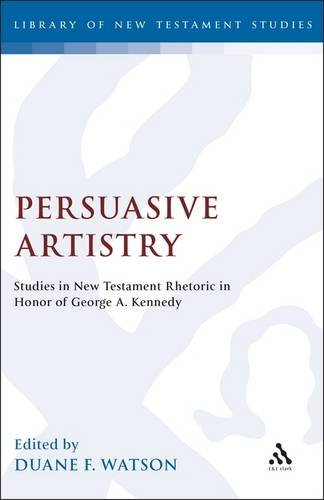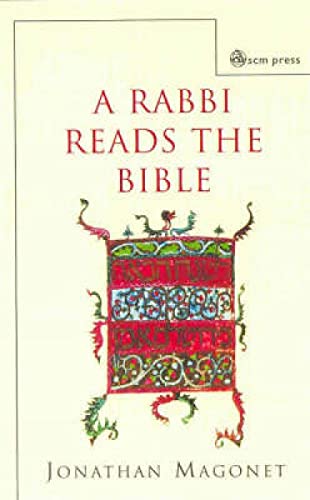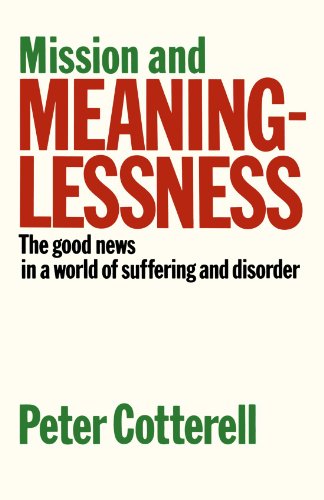Volume 18 - Issue 3
A survey of church history articles 1990–92
By Martin DavieAs in the case of my previous survey of church history articles in 1990, this current survey makes no claims to be either comprehensive or unbiased. The articles mentioned are those I personally found interesting and which I hope may interest others also. I apologise in advance if I have missed out your favourite article or the one that you wrote! The articles surveyed are arranged under three headings: ‘Patristic’, which covers articles on the Fathers; ‘Reformation’, which covers the 16th and 17th centuries; and ‘Enlightenment and Modern’, which covers the history of the church from the 18th century to the present day.
Patristic
Charles A. Bobertz, ‘The historical context of Cyprian’s De Unitate’, Journal of Theological Studies Vol. 41 Part 1, April 1990
As its title suggests, this article examines the context of the De Unitate and concludes that it was not written to counter the Novationist schism in Rome but was addressed to the Carthaginian laity and intended to deal with the problem of schism in the Carthaginian church.
M.J. Edwards, ‘On the Platonic schooling of Justin Martyr’, Journal of Theological Studies Vol. 42 Part 1, April 1991, and ‘Origen no Gnostic; or on the corporality of Man’, Journal of Theological Studies Vol. 43 Part 1, April 1992
In these two articles Edwards argues that Justin was the ‘student and exponent’ of a specific form of Platonism found in the philosophical schools of his day and that Origen affirmed the essential corporeality of man and hence our possession of bodies in heaven.
Colin Gunton, ‘Augustine, the Trinity and the Theological Crisis of the West’, Scottish Journal of Theology Vol. 43 No. 1, 1990
The understanding of the Trinity put forward by Augustine has decisively shaped the theological tradition of Western Christianity. In this article Gunton argues that Augustine’s view of the Trinity was flawed, in that it does not allow us to have confidence that we know God as he really is, and that the influence of his teaching can be seen to underlie Western atheism and the questioning of the doctrine of the Trinity in contemporary Western theology. An article of interest to students of Augustine and of Trinitarian doctrine alike.
Verna Harrison, ‘Male and Female in Cappadocian Theology’, Journal of Theological Studies Vol. 41 Part 1, April 1990
The early Fathers are often portrayed as unreconstructed misogynists, out in this article Harrison argues that texts such as Galatians 3:28 and Genesis 1:26 led the Cappadocian Fathers to hold that redeemed humanity possesses a unity in Christ which transcends the division between the sexes and that both men and women share fully in the image of God.
Valerie Karras, ‘Male domination of Women in the writings of St John Chrysostom’, Greek Orthodox Theological Review Vol. 36 No. 2, Summer 1991
Continuing the theme of patristic attitudes to relations between the sexes, Karras’s article contends that Chrysostom believed that the subjection of women to men was not part of the created order but a result of the fall. She notes that Chrysostom believed the purpose of this subjection was so that men could guide women to God, and that if a woman should prove to be a better spiritual guide than a man, this should be accepted, even though it subverted the normal order of things.
Helmut Koester, ‘Writings and the Spirit: Authority and Politics in Ancient Christianity’, Harvard Theological Review 84:4, October 1991
The question of how the NT writings came to be recognized as having authority is one that is of enormous importance, and in this article Koester gives his reconstruction of how it happened. As he sees it, in the earliest days of the church the epistles and gospels had authority because they helped to create and maintain the worldwide Christian community. It was not until the time of Clement and Origen that these writings came to be seen as verbally inspired and as being linked to the authority of the apostles. A provocative article which evangelicals should read, if only to stimulate their own thinking about this vital issue.
Alvyn Petterson, ‘The Arian Context of Athanasius of Alexandria’s Tomus ad Antiochenos vii’, Journal of Ecclesiastical History 41:2, April 1992, and ‘The Laity—Bishop’s Pawn? Ignatius of Antioch on the Obedient Christian’, Scottish Journal of Theology Vol. 44 No. 1, 1991
In these two revisionist articles Petterson maintains that Athanasius’s tome was not directed against Apollinarius but was aimed against the Arian heresy in order to help sort out problems within the church at Antioch, and that Ignatius’s teaching about episcopacy is not concerned with the laity merely being the pawns of the bishops but with both bishops and laity imitating and embodying the perfect obedience of Christ.
Joseph W. Trigg, ‘The Angel of Great Council: Christ and the angelic hierarchy in Origen’s thought’, Journal of Theological Studies Vol. 42 Part 1, April 1991
This fascinating study by Trigg explores the angeology of Origen and explains how Origen held, on the basis of Isaiah 9:6, that Christ himself took the place of a guardian angel for spiritually advanced Christians such as himself, and how he believed that his authority as a biblical interpreter rested on the direct access to Christ he possessed as a result of this fact.
D.H. Williams, ‘The early career and exile of Hilary of Poitiers’, Journal of Ecclesiastical History Vol. 42 No. 2, April 1991
Hilary of Poitiers is often described as the ‘Athanasius of the west’, but in this article Williams argues that, contrary to hagiographic tradition, Hilary’s exile in 356 was not due to his opposition to Arianism and that in fact he only became a supporter of Nicene orthodoxy after his exile had begun.
Reformation
Marvin W. Anderson, ‘Vista Tigurina: Peter Martyr and European Reform (1556–1562)’, Harvard Theological Review 83:2, April 1990
This article by Anderson examines the influence exerted by Peter Martyr from his base in Zürich on the Reformation in England through his lectures on Samuel and his defence of Cranmer’s eucharistic doctrine, and on the Reformation in Poland through his advice on how to defend Trinitarian orthodoxy in the face of a rebirth of Arianism. An interesting reminder of the international character of Reformed theology and of the important role played by the secondary figures of the Reformation.
Roger Beckwith, ‘Thomas Cranmer after five hundred years’, Churchman Vol. 104 No. 1, 1990
This article, written to commemorate the 500th anniversary of Cranmer’s work, gives a lucid and comprehensive account of Cranmer’s career and achievements. An excellent starting point for anyone approaching Cranmer for the first time.
Joel R. Beeke, ‘Faith and assurance in the Heidelberg Catechism and its primary composers’, Calvin Theological Journal Vol. 27 No. 1, April 1992
R.T. Kendall’s seminal thesis on Calvin and English Calvinism to 1649 argued that theologians such as Theodore Beza and William Perkins departed from the teaching of John Calvin in their doctrines of faith and assurance. Beeke re-examines Kendall’s argument, using the Heidelberg Catechism and its chief authors Ursinus and Olevianus as his starting point. His conclusion is that: ‘… notwithstanding differences in matters of degree on the doctrines of faith and assurance between Calvin, the HC and its primary authors, there is scant variation in substance’. An article of interest to those studying the development of the Reformed tradition.
Charles M. Cameron, ‘Arminius—Hero or Heretic?’, Evangelical Quarterly Vol. LXIV No. 3, July 1992
From time to time theologians attempt to rehabilitate a theological villain. This is the exercise engaged in by Cameron in this article on that arch-villain to all good Calvinists, Jacobus Arminius. After comparing Arminius’ teaching with the traditional five points of Calvinism, Cameron concludes that Arminius is a theologian who can help us hold a biblical balance between God’s grace and human faith and who ‘… invites us to have confidence in the gospel of Jesus Christ without becoming over-confident in any particular interpretation, such as inflexible “Calvinism” or superficial “Arminianism” ’.
Steven G. Ellis, ‘Economic problems of the Church: why the Reformation failed in Ireland’, Journal of Ecclesiastical History 41:2, April 1992
One of the intriguing questions about the Anglican Reformation is why it so signally failed in Ireland. In this article Ellis argues convincingly that economic factors may have had a large part to play in this failure. He argues that the church in Ireland lacked the resources necessary to support an effective preaching ministry and that the wealthy English gentry and merchants in Ireland who were alienated from the English government preferred to spend their money to support Catholic priests and services. A salutary reminder that an effective ministry needs to be paid for!
R.M. Hawkes, ‘The Logic of Assurance in English Puritan Theology’, The Westminster Theological Journal Vol. 52:2, Fall 1990
A question central to Puritan theology was how the believer could know that he or she was one of the elect. This article by Hawkes explains how the answer to this question took the form of a spiral of assurance in which the good works issuing from faith showed the believer that God’s grace was at work in their life and this in turn led to further good works in response to this grace. An important article for anyone seeking to understand Puritan theology and spirituality.
Randall C. Zachman, ‘Jesus Christ as the image of God in Calvin’s theology’, Calvin Theological Journal Vol. 25 No. 1, April 1990
In this fascinating article Zachman argues that the heart of Calvin’s Christology lies in the idea of Jesus Christ as ‘the image of God the Father in whom alone the Father is represented and made known to sinners’, and that this understanding of Christ enables Calvin to hold in unity the person and work of Christ, God as Creator and God as Redeemer and a traditional Chalcedonian Christology with a Spirit Christology.
Enlightenment and Modern
D.W. Bebbington, ‘Evangelicalism in modern Scotland’, Scottish Bulletin of Evangelical Theology Vol. 9 No. 1, Spring 1991
In this article Bebbington surveys the origins and development of Evangelicalism in Scotland since the 18th century and concludes that this history shows that the idea that Western society has steadily become less important since the Reformation is invalid, since ‘Church attendance and the Christian tone of society at large both increased during the nineteenth century’. The moral he draws from this is that secularization is not irreversible and that the Evangelicalism that transformed Scotland in the past may do so again.
S.J. Brown, ‘Reform, reconstruction, reaction: the social vision of Scottish Presbyterianism c. 1830–c.1930’, Scottish Journal of Theology Vol. 44 No. 4, 1991
In another article on Scottish church history, Brown explains how members of the Scottish Presbyterian churches developed a ‘… new social vision, based less upon the reform and conversion of individuals, and more upon the reform of social structures’ in the late-19th and early-20th centuries. He then further argues that this vision was lost amidst the preparations for the union of the Church of Scotland and the United Free Church in 1929 and concludes that ‘the Union of the Presbyterian Churches in 1929 was achieved at the cost of their social influence’.
Graham Cole, ‘Theological Utilitarianism and the eclipse of the theistic sanction’, Tyndale Bulletin 42.2, 1991
A question that any form of Christian ethical theory has to face is why one should behave in a morally acceptable fashion. In this article Cole looks at a group of 18th-century theologians who sought to provide an answer to this question. Cole notes particularly that the ‘theistic sanction’, the threat of divine retribution after death, was central to their account of why one should be moral: ‘Those who base their life on self-interest may have temporal success, but eternal woe is coming.’ Cole’s article is interesting not only as a historical study but because it raises the issue of how the contemporary Christian ethicist can justify moral behaviour in a world where the idea of divine retribution has become increasingly discounted.
K.R. Morris, ‘The Puritan Roots of American Universalism’, Scottish Journal of Theology Vol. 44 No. 4, 1991
Orthodox Calvinism seems an unlikely seed bed for a universalist theology, and yet in this article Morris argues persuasively that this was in fact the case in New England in the late-17th and early-18th centuries. As he sees it, the revivals that took place in this period challenged the Calvinist doctrine of limited atonement because: ‘If anyone could respond to an altar call, then anyone could become a Christian; therefore Christ’s atonement was for all. Since Christ’s work on the Cross was believed to have been a literal substitution for sinners, and revivalism’s implied general atonement says that salvation was for everyone, the commonsense conclusion, to which many believers came, was universal salvation.’ An important article which raises once again the perennial issue tackled by J.I. Packer in Evangelism and the Sovereignty of God of how to combine theologically a strong belief in election with an equally strong enthusiasm for the universal proclamation of the gospel.
Michael Root, ‘Schleiermacher as Innovator and Inheritor; God, Dependence and Election’, Scottish Journal of Theology Vol. 43 No. 1, 1990
As ‘the father of modern theology’, Schleiermacher is generally seen as a theological innovator. However, in this important article Root argues convincingly that he was ‘… a surprisingly dutiful son of the Western theological tradition’. Specifically, Root contends that his understanding of the relationship between God and the world as one of ‘absolute dependence’ represents an attempt to ‘think through to the end’ the consequences of a strict Augustinian-Calvinist doctrine of election.
David Samuel, ‘Evangelicals and History’, Churchman Vol. 106 No. 3, 1992
In this article Samuel argues that at their conference at Keele in 1967 Anglican evangelicals took a decision to renounce previous evangelical history and start all over again. He further maintains that this was a mistake because both Scripture and church history teach us that we need to take history seriously and because the repudiation of their history has left Anglican evangelicals ‘a prey to novelty and passing fashion’. A controversial article, but one that needs to be pondered by anyone seeking to assess the state of evangelicalism in the Church of England.
John Wilson, ‘An appraisal of C.S. Lewis and his influence on modern Evangelicalism’, Scottish Bulletin of Evangelical Theology Vol. 9 No. 1, Spring 1991
Almost 30 years after his death, the work of C.S. Lewis remains as popular and influential as ever. In this interesting article, which would be a good starting point for anyone approaching Lewis for the first time, Wilson looks at ‘Lewis the man, his theology and apologetics’, and then attempts ‘an appraisal and discussion of his influence’. Wilson’s conclusion is that Lewis may have been sent by God ‘… to undermine intellectual prejudices and open the way for the preachers’, and that ‘… the growth of evangelicalism in the past 30 years may owe more to Lewis than is generally recognised’.
Martin Davie
Ware






